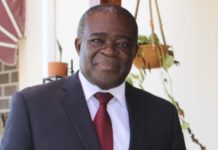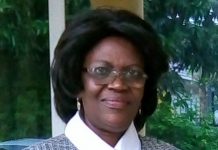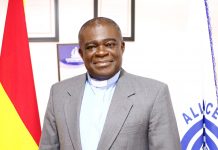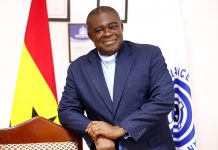|
Getting your Trinity Audio player ready...
|
Ghana’s achievements combination of traditional, political authority – Asantehene
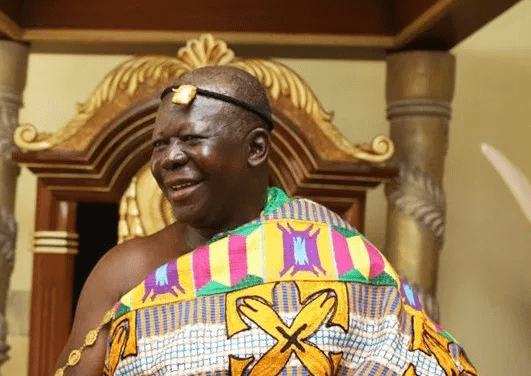
The Asantehene, Otumfuo Osei Tutu II, has said Ghana has successfully managed to exploit the power of traditional and political authority for strong co-existence in the country’s development effort.
He said it was clear that the government alone could not address the challenges facing the country, for which reason there was the need for traditional authorities, stakeholders and civil society to partner it to bring the envisaged rapid development to the people.
The Asantehene said this when he addressed the United Nations High Level Forum on the 20th Anniversary of the Adoption and Declaration of the Culture of Peace in New York last Friday.
The forum was part of activities marking the 73rd General Assembly of the UN.
The anniversary was on the theme: “20th Anniversary of Culture of Peace: Empowering and Transforming Humanity”.
Ghana’s example
The Asantehene, who was addressing the United Nations for the first time, said on ascending the Golden Stool, he realised that the role of traditional authority in ensuring peace and development in Africa could not be underestimated.
He said it was becoming clear that a number of the conflicts in Africa arose in areas where there was a breakdown of traditional authority.
Arbiters
Otumfuo Osei Tutu also touched on the role of traditional rulers as arbiters in the resolution of conflicts.
“Apart from our role as custodians of the land, we are the primary arbiters in the resolution of conflicts on a daily basis, helping to maintain peace and order at all levels. Presidents and governments look to us for advice and counsel from the perspective of non-partisanship, in pursuit of their constitutional mandate,” he said.
He said the traditional system of arbitration in Asanteman was now a source of considerable study among international legal authorities.
Otumfuo Osei Tutu refuted the perception that inter-tribal differences were the reasons for the failure of Africans.
He expressed regret over the way Africans were underestimated in the management of their own affairs and noted that before colonisation, Africans were ruling effectively.
“Through my foundation, the Otumfuo Foundation, I have managed to support 600,000 students with scholarships, both at the pre-tertiary and the tertiary educational levels, apart from the provision of health care, water and sanitation the foundation is striving to achieve,” he said.
2016 Elections
Otumfuo Osei Tutu recalled his contribution to resolving Dagbon’s 17-year-old chieftaincy conflict with other eminent chiefs and said that helped to prevent the Dagbon area from plunging into further disturbances.
He also mentioned how he made all political party leaders to sign a bond to exhibit good conduct before, during and after the 2016 general election, which went a long way to preserve the peace and stability of the nation.
He revealed that the Manhyia Palace persuaded the losing candidate in the 2016 presidential election to accept defeat, which saved the country from plunging into confusion.
“At the conclusion of the last presidential and parliamentary elections, the country stood on the edge of disaster. UN representatives and the diplomatic community were aghast; alarmed that Ghana was going to slip down the slope of electoral violence.
“Fortunately, the moral authority of the palace was at hand. We were able to intervene to persuade the losing candidate to accept his fate and fly both candidates for a quiet encounter to pave the way for a handover,” he said.
He described the intervention as one of the “highest examples of the crucial roles behind the curtains when the moral force of tradition is harnessed to protect and sustain the peace, unity and security of Ghana”.
Achieving Sustainable Development Goals
The Asantehene noted that for the UN to achieve the Sustainable Development Goals (SDGs), there was the need for sustained peace, dialogue, free flow and sharing of knowledge, equality of men and women, among other things.
Stressing that no country could afford to live in isolation in a globalised world, he said: “Countries need to work in partnership to make the world a better place to live.”
UN Charter
The Chef de Cabinet of the UN, Ms Maria Luiza Ribeiro Viotti, on behalf of the UN Secretary-General, said peace was at the heart of the UN Charter and all that the organisation did.
She said the concept of a culture of peace provided an intellectual frame and political impulse for action and it was a concept that embodied the need to make peace a way of life.
“Peace is something we must work hard to secure every day and everywhere. We must remain determined to address age-old challenges to peace, including violence against women. Indeed, whether it is brutal crimes in one part of the world or violent extremism in another, quite often one of the strongest common denominators is hostility towards women,” she said.
Ms Viotti said conflict crippled development, brought about poverty, eroded institutions and deprived millions of security, resources, rights and opportunities.
In times of conflict, she said, civilians paid the highest price, which also fuelled the fragmentation of families and societies.





